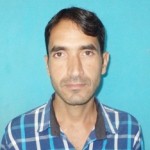- This topic has 29 replies, 9 voices, and was last updated 9 years, 8 months ago by
 Rajguru M. Mohan.
Rajguru M. Mohan.
-
AuthorPosts
-
-
March 9, 2016 at 3:00 pm #32159
 ZULKARNAINParticipant
ZULKARNAINParticipantHi All…
i would like to know about Radio over fiber technology like its benefits over traditional technologies and its applications. is it implementable in optiwave and if yes then what components are to be used in my design? -
March 9, 2016 at 10:16 pm #32164
 TanveerParticipant
TanveerParticipanthi zulkarnain,,,
Radio-over-fiber (RoF) is a technology used to distribute RF signals over analog optical links. In such RoF systems, broadband microwave data signals are modulated onto an optical carrier at a central station (CS), and then transported to remote sites or base station (BS) using optical fiber. The base-stations then transmit the RF signals over small areas using microwave antennas.
For more information about Radio over fiber technology kindly referFor Implementation in Optiwave kindly refer
with regards
-
March 10, 2016 at 12:05 am #32167
 aasif bashir darParticipant
aasif bashir darParticipanthi zulkarnain,
implementation of radio over fiber is quit possible in optiwave, for visit the link below:i will uplload the .osd sample file of ROF soon.
with regards
-
March 10, 2016 at 12:07 am #32168
 aasif bashir darParticipant
aasif bashir darParticipanthere is the .osd file.
-
March 10, 2016 at 12:33 am #32174
 ZULKARNAINParticipant
ZULKARNAINParticipantTHANK YOU AASIF BASHIR DAR AND TANVEER FOR YOUR ANSWERS.
-
March 10, 2016 at 12:45 am #32181
 umer syedParticipant
umer syedParticipanthi all,
i appreciate asif for upload the ROF sample .osd file. it will help zulkarnainwith regards
-
March 10, 2016 at 12:56 am #32186
 ZULKARNAINParticipant
ZULKARNAINParticipantHI ALL…
AS THE SIGNAL IS TRANSPORTED TO LONGER DISTANCES FROM THE CENTRAL STATION TO THE REMOTE LOCATIONS, THE QUALITY WILL GET DEGRADED. SO HOW CAN WE OBTAIN A RELIABLE COMMUNICATION WITHOUT ANY COMPROMISE ON THE QUALITY?
ANSWERS WILL BE APPRECIATED
WITH REGARDS -
March 10, 2016 at 12:58 am #32188
 ZULKARNAINParticipant
ZULKARNAINParticipantALSO I WOULD LIKE TO KNOW THAT IF WE ARE ABLE TO TRANSMIT RELIABLY TO LONGER DISTANCES USING WIRELESS COMMUNICATION,THEN WHAT IS THE ADVANTAGE OF RADIO OVER FIBER COMMUNICATION. IS IT THE BANDWIDTH OR SOMETHING ELSE.
WITH REGARDS -
March 10, 2016 at 1:10 am #32195
 aasif bashir darParticipant
aasif bashir darParticipantAdvantages of ROF Technology
Some of the advantages and benefits of the RoF technology are discussed follow:
(i) Low Attenuation Loss: Electrical distribution of high-frequency microwave signals
either in free space or through transmission lines is problematic and costly .
Therefore, distributing high frequency radio signals electrically over long distances
requires expensive regenerating equipment.
(ii) Large Bandwidth: Optical Fibers offer enormous bandwidth. There are three main
transmission windows, which offer low attenuation, namely the 850 nm, 1310 nm,
and 1550 nm wavelengths.
(iii)Immunity to Radio Frequency Interference: Immunity to Electromagnetic Interference
(EMI) is a very attractive property of optical Fiber communications, especially for
microwave transmission. This is so because signals are transmitted in the form of
light through the Fiber. Because of this immunity, fiber cables are preferred even
for short connections at mm-waves.
(iv)Easy Installation and Maintenance: In RoF systems, complex and expensive equipment
is kept at the head end, thereby making the RAUs simpler. For instance, most RoF
techniques eliminate the need for a LO and related equipment at the RAU. In such
cases a photo detector, an RF amplifier, and an antenna make up the RAU.
Modulation and switching equipment is kept in the headend and is shared by several
RAUs. This arrangement leads to smaller and lighter RAUs, effectively reducing
system installation and maintenance costs.
(v) Multi-Operator and Multi-Service Operation: RoF offers system operational flexibility.
Depending on the microwave generation technique, the RoF distribution system can
be made signal-format transparent . For instance the Intensity Modulation and
Direct Detection (IM-DD) technique can be made to operate as a linear system and
therefore as a transparent system. -
March 10, 2016 at 1:11 am #32198
 aasif bashir darParticipant
aasif bashir darParticipantLIMITATIONS OF ROF TECHNOLOGY
Since RoF involves analogue modulation, and detection of light, it is fundamentally an
analogue transmission system. Therefore, signal impairments such as noise and distortion,
which are important in analogue communication systems, are important in RoF systems as well
. These impairments tend to limit the Noise Figure (NF) and Dynamic Range (DR) of the
RoF links. DR is a very important parameter for mobile (cellular) communication systems such as GSM because the power received at the BS from the MUs varies widely That is, the RF
power received from a MU which is close to the BS can be much higher than the RF power
received from a MU which is several kilometers away, but within the same cell. -
March 10, 2016 at 1:14 am #32199
 aasif bashir darParticipant
aasif bashir darParticipanthi zulkarnain
i suggest to visit the link
http://www.artechhouse.com/uploads/public/documents/chapters/Al-Raweshidy148-ch04.pdf
it will provide you every basic aspect of ROF.with regards
-
March 10, 2016 at 5:04 am #32219
 Dr. Dhiman KakatiParticipant
Dr. Dhiman KakatiParticipantHi Aashif,
The pdf you have attached here is very much helpful in terms of clearing the concepts. Thanks for Sharing.Regards,
Dhiman
-
-
March 10, 2016 at 1:19 am #32205
 love kumarParticipant
love kumarParticipantRoF with optical inter leaver system
-
March 10, 2016 at 1:29 am #32208
 aasif bashir darParticipant
aasif bashir darParticipanthi love kumer,
i will also the upload RoF with optical inter leaver system which you mentioned in your comment.thanks for reminding it. here is the osd file.with regards
-
March 10, 2016 at 4:59 am #32216
 Dr. Dhiman KakatiParticipant
Dr. Dhiman KakatiParticipantHi Asif,
In the RoF design file you have attached the spectrum of the two optical signals after the interleaver is same, and as far asa the theoretical aspect the interleaver is used two separate the two frequencies in case of a dual wavelength optical signal, and this will help in designing a full duplex system. But in your case you are using for the same type of detection only. Can you please elaborate more in this regards. thanking you.Regards,
Dhiman
-
-
March 10, 2016 at 1:36 am #32210
 love kumarParticipant
love kumarParticipantosd file
-
March 10, 2016 at 3:58 am #32214
 umer syedParticipant
umer syedParticipanthi zulkarnain..
Radio over fiber (RoF) refers to a technology whereby light is modulated by a radio signal and transmitted over an optical fiber link to facilitate wireless access, such as 3G and WiFi simultaneous from the same antenna.
Advantages of ROF Technology
Some of the advantages and benefits of the RoF technology are discussed follow:
(i)Low complexity: RoF makes use of the concept of a remote station (RS). This station only consists of an optical-to-electrical (O/E) (and an optional frequency up or down converter), amplifiers, and the antenna. This means that the resource management and signal generation circuitry of the base station can be moved to a centralized location and shared between several remote stations, thus simplifying the architecture
(ii) Low Attenuation Loss: Electrical distribution of high-frequency microwave signals
either in free space or through transmission lines is problematic and costly .
Therefore, distributing high frequency radio signals electrically over long distances
requires expensive regenerating equipment.
(ii) Large Bandwidth: Optical Fibers offer enormous bandwidth. There are three main
transmission windows, which offer low attenuation, namely the 850 nm, 1310 nm,
and 1550 nm wavelengths.
(iii)Immunity to Radio Frequency Interference: Immunity to Electromagnetic Interference
(EMI) is a very attractive property of optical Fiber communications, especially for
microwave transmission. This is so because signals are transmitted in the form of
light through the Fiber. Because of this immunity, fiber cables are preferred even
for short connections at mm-waves.
(iv)Easy Installation and Maintenance: In RoF systems, complex and expensive equipment
is kept at the head end, thereby making the RAUs simpler. For instance, most RoF
techniques eliminate the need for a LO and related equipment at the RAU. In such
cases a photo detector, an RF amplifier, and an antenna make up the RAU.
Modulation and switching equipment is kept in the headend and is shared by several
RAUs. This arrangement leads to smaller and lighter RAUs, effectively reducing
system installation and maintenance costs.-
March 10, 2016 at 1:32 pm #32318
 ZULKARNAINParticipant
ZULKARNAINParticipanthi umer…
i think aasif bashir dar had already told the various advantages of the Rado aver fiber.
but thankyou for your reply..
-
-
March 10, 2016 at 5:09 am #32220
 Dr. Dhiman KakatiParticipant
Dr. Dhiman KakatiParticipantHi ZULKARNAIN,
Aasif has already mentioned most of the advantages regarding Radio over Fiber. You can also go through the pdf attached in response #32199.
moreover I will suggest you to use some advanced modulation schemes to increase the Bit rate, transmission distance, and spectrum efficiency etc.Regards,
Dhiman-
March 10, 2016 at 10:15 am #32262
 Aabid BabaParticipant
Aabid BabaParticipantHello zulkarnain,
As far as i am concerned you may find simulation set-ups of radio over fiber systems in the optiwave examples in the sample files folder. Please refer to the sample files it would surely help you because i have seen many examples of radio over fiber there.Regards
-
-
March 10, 2016 at 5:15 am #32223
 Dr. Dhiman KakatiParticipant
Dr. Dhiman KakatiParticipantHi,
Further one more advantage I want to add here is that If you are designing fiber-wireless (fi-wi) system then after optical to electrical conversion you need not to convert the information to its original form rather you can transmit it wirelessly and then decode (decision eleent) the data at the user terminal. this is because we are using here RF or mm-wave frequency. this will really simplyfy the whole system and performance also.Regards,
Dhiman-
March 10, 2016 at 1:48 pm #32322
 ZULKARNAINParticipant
ZULKARNAINParticipantHi Dhiman Kakati…
thanks for your reply…
i am not able to understand your answer regarding conversion of data to its original form…please elaborate further so that i can understand it..
Hope you will take some time to reply back..
with regards..
-
-
March 10, 2016 at 1:29 pm #32317
 ZULKARNAINParticipant
ZULKARNAINParticipanthi all…
i appreciate all and thank all for your answers… -
March 10, 2016 at 1:41 pm #32319
 ZULKARNAINParticipant
ZULKARNAINParticipanti understood that Radio over Fiber(ROF) has so may advantages like enormous bandwidth,immunity to interference etc as compared to wireless.
But i didn’t understood the eazy setup of Radio over Fiber(ROF).i think it is very difficult to setup optic fiber link to remote locations,but we can easily setup a wireless connectivity.Well i think the end user doesn’t use enormous bandwidth and he can get his share of bandwidth from wireless as well.
From security purpose of view Radio over Fiber(ROF) is preferable over wireless,but with increasing complexity of the cryptography algorithms we can achieve that as well…
Discussion will be welcomed.
wit regards -
March 10, 2016 at 1:58 pm #32324
 TanveerParticipant
TanveerParticipanthi zulkarnain….
i hope that you will find the detailed review about the Radio over fiber technology in below given linkshttp://bura.brunel.ac.uk/bitstream/2438/5580/2/Fulltext.pdf
with regards
-
March 10, 2016 at 3:56 pm #32346
 SAHIL SINGHParticipant
SAHIL SINGHParticipantHi Asif and umer syed…
Thank you for sharing such valuable information of Radio Over Fibre (ROF) technology…
Highly appreciate your efforts..
Regards.. -
May 3, 2016 at 5:40 pm #38788
 Rajguru M. MohanParticipant
Rajguru M. MohanParticipantHi,
Radio over fiber means a technology in which light is modulated by a radio signal and transmitted over an optical fiber link to facilitate wireless access, such as 5G and WiFi simultaneous from the same antenna.
i.e. radio signals are carried over fiber-optic cable.
Radio over Fiber technology (RoF), an integration
of wireless and fiber optic networks, is an essential technology
for the provision of untethered access to broadband wireless
communications in a range of applications including last mile
solutions, extension of existing radio coverage and capacity,
and backhaul.The traditional link between the radio base station (RBS) and
the antenna has previously been a copper coaxial cable. To use
an optical fiber cable instead, makes both design of new sites,
as well as the physical deployment of the hardware, much
easier.
Thanks, -
May 3, 2016 at 5:42 pm #38789
 Rajguru M. MohanParticipant
Rajguru M. MohanParticipantHi,
First RoF systems were mainly used to transport
microwave signals, and to achieve mobility functions in the
central office or exchange (CO). That is, modulated
microwave signals had to be available at the input end of
the RoF system, which subsequently transported them over
a distance to the RS (Remote Site) in the form of optical.
First RoF systems were mainly used to transport
microwave signals, and to achieve mobility functions in the
central office or exchange (CO). That is, modulated
microwave signals had to be available at the input end of
the RoF system, which subsequently transported them over
a distance to the RS (Remote Site) in the form of optical.
Thanks, -
May 3, 2016 at 5:44 pm #38790
 Rajguru M. MohanParticipant
Rajguru M. MohanParticipantHi,
Here are the advantages of ROF Technology :
Some of the advantages and benefits of the RoF technology are discussed follow:
(i) Low Attenuation Loss: Electrical distribution of high-frequency microwave signals
either in free space or through transmission lines is problematic and costly.(ii) Large Bandwidth: Optical Fibers offer enormous bandwidth. There are three main
transmission windows, which offer low attenuation, namely the 850 nm, 1310 nm,
and 1550 nm wavelengths.
(iii)Immunity to Radio Frequency Interference: Immunity to Electromagnetic Interference
(EMI) is a very attractive property of optical Fiber communications, especially for
microwave transmission. Because of this immunity, fiber cables are preferred even
for short connections at mm-waves.
(iv)Easy Installation and Maintenance: In RoF systems, complex and expensive equipment
is kept at the head end, thereby making the RAUs simpler. For instance, most RoF
techniques eliminate the need for a LO and related equipment at the RAU.(v) Multi-Operator and Multi-Service Operation: RoF offers system operational flexibility.
Depending on the microwave generation technique, the RoF distribution system can
be made signal-format transparent.
thanks, -
May 3, 2016 at 5:46 pm #38791
 Rajguru M. MohanParticipant
Rajguru M. MohanParticipantHi,
Finally, i want to discuss about the LIMITATIONS OF ROF TECHNOLOGY:Since RoF involves analogue modulation, and detection of light, it is fundamentally an
analogue transmission system. Therefore, signal impairments such as noise and distortion,
which are important in analogue communication systems, are important in RoF systems as well.
These impairments tend to limit the Noise Figure (NF) and Dynamic Range (DR) of the
RoF links.
as GSM because the power received at the BS from the MUs varies widely That is, the RF
power received from a MU which is close to the BS can be much higher than the RF power
received from a MU which is several kilometers away, but within the same cell.thanks,
-
-
AuthorPosts
- You must be logged in to reply to this topic.

